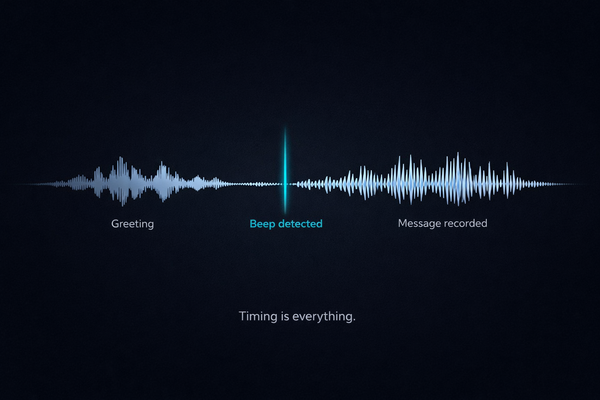[AI Digest] Reasoning, Voice, and Oversight Advances
![[AI Digest] Reasoning, Voice, and Oversight Advances](/content/images/size/w1200/2025/07/Daily-AI-Digest.png)
Daily AI Research Update - July 24, 2025
Today's research reveals groundbreaking advances in AI agent capabilities that directly impact the future of customer experience platforms. From enhanced reasoning frameworks to revolutionary voice interaction techniques, these developments signal a new era in human-AI collaboration.
📌 FormulaOne: Measuring the Depth of Algorithmic Reasoning Beyond Competitive Programming
Description: Frontier AI models including GPT-4 achieve less than 1% success on real-world optimization problems despite excelling at competitive programming, revealing fundamental reasoning limitations.
Category: Chat agents, Web agents
Why it matters: For customer experience platforms, this research highlights critical reasoning limitations in AI agents. It emphasizes the need for specialized evaluation frameworks to ensure agents can handle real-world problem-solving beyond simple pattern matching.
📌 STITCH: Simultaneous Thinking and Talking with Chunked Reasoning for Spoken Language Models
Description: Introduces a method allowing AI to reason internally while speaking, achieving 15% improvement in mathematical reasoning without increasing latency by utilizing audio playback time for computation.
Category: Voice agents
Why it matters: Revolutionary for voice-based customer service - enables more thoughtful, accurate responses without awkward pauses. The zero-latency variant could dramatically improve natural conversation flow in voice interactions.
📌 Towards Physician-Centered Oversight of Conversational Diagnostic AI
Description: Proposes asynchronous oversight framework where AI conducts comprehensive interviews but defers critical decisions to human experts, with AI outperforming human clinicians in information gathering.
Category: Chat agents, Voice agents
Why it matters: Directly applicable to customer service models - suggests optimal human-AI collaboration patterns where agents excel at information gathering while humans approve critical decisions, improving both efficiency and safety.
📌 VAR-MATH: Probing True Mathematical Reasoning in Large Language Models
Description: Exposes that many AI models rely on memorization rather than true reasoning, with performance dropping up to 93% on varied problem instances. Introduces framework for testing genuine understanding.
Category: Chat agents
Why it matters: Critical for ensuring customer service agents genuinely understand problems rather than pattern-matching. The symbolic testing framework could be adapted to evaluate real-world reasoning capabilities.
📌 Inverse Scaling in Test-Time Compute
Description: Discovers that giving AI models more "thinking time" can actually worsen performance in certain scenarios, identifying five distinct failure modes including distraction and spurious correlation fixation.
Category: Chat agents, Voice agents
Why it matters: Essential insight for optimizing agent response times. Suggests that longer processing doesn't always mean better answers - could inform dynamic reasoning time allocation based on query type.
📌 Being-H0: Vision-Language-Action Pretraining from Large-Scale Human Videos
Description: Demonstrates learning dexterous manipulation from human videos, achieving superior performance with 75% less training data through "Physical Instruction Tuning."
Category: Web agents
Why it matters: The approach of learning from human demonstrations could revolutionize how web agents are trained to navigate interfaces and complete tasks, potentially reducing training data requirements significantly.
📌 Frontier AI Risk Management Framework in Practice
Description: Comprehensive evaluation of 18 frontier models across seven risk categories. Most models demonstrate effective human persuasion capabilities, placing them in "yellow zone" for manipulation risks.
Category: Chat agents, Voice agents
Why it matters: Crucial for responsible AI deployment in customer-facing roles. The framework provides concrete methods for evaluating and mitigating risks, particularly around persuasion and manipulation in customer interactions.
This research roundup supports Anyreach's mission to build emotionally intelligent, visually capable, and memory-aware AI agents for the future of customer experience.




![[AI Digest] Agents Coordinate Plan Deploy Scale](/content/images/size/w600/2025/07/Daily-AI-Digest.png)